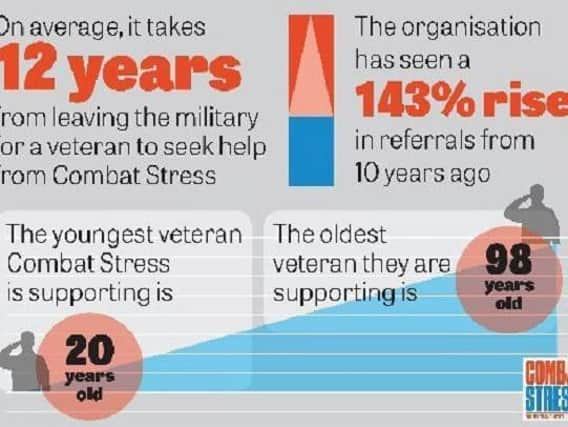Veterans face lengthy delay in securing mental health care


And the House of Commons Defence Committee warned it is still taking “too long” for veterans to access treatment, with some falling through the gaps and availability of care varying in different parts of the UK.
Last week, the Wigan Post ran a series of articles highlighting the problems faced by members of the armed forces and today’s official Ministry of Defence figures showed that 3.1 per cent of serving personnel are diagnosed with mental health conditions, twice the proportion seen in 2008/09.
Advertisement
Hide AdAdvertisement
Hide AdBut the committee warned the number of veterans with conditions such as post-traumatic stress disorder (PTSD) or depression could be three times higher, at about 10 per cent, amid concerns some may not seek help because of stigma around mental health.
Deployment to combat roles in Iraq or Afghanistan “clearly increased the likelihood of mental health conditions”, with one 2014 study finding PTSD levels of 6.9 per cent among regular troops and six per cent among reservists.
Other groups who are potentially more vulnerable to mental health problems include female personnel, those who leave the service early and those recruited below the age of 18, said the report.
But the cross-party MPs’ committee said it was “not only wrong, but harmful” to think that most servicemen and women are damaged by their experience in the military, stressing that the “vast majority” leave with no mental problems.
Advertisement
Hide AdAdvertisement
Hide AdThe report said that media coverage and publicity by armed forces charities had helped create a “distorted” public perception of the extent of the problem which could be increasing stigma.
“Rather than causing problems, military service can have a positive effect on an individual’s mental health,” said the report. Too much attention may be being paid to PTSD, when conditions like depression are actually more common, it said.
The report also found it is still taking too long to access treatment and levels of care vary across the UK.